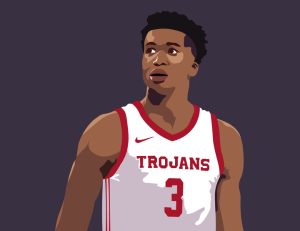Sony was clearly the market leader last generation, smoking the competition to the tune of about 80 million units. With such rampant success, it’s difficult to imagine that only a few years from now the PlayStation 3 could be either in the middle of or at the culmination of a downturn.
According to DFC Intelligence analyst David Cole, however, it is conceivable for Sony to finish third in the upcoming console arms race. With the expected competitive pricing of Nintendo’s Wii and Microsoft’s five million units installed base, Sony is in an uphill battle for the first time in 10 years.
Can Sony actually lose its long held status as market leader this generation?
While Microsoft has lost millions on its Xbox brand, Sony is now losing equally as much, if not more, on the PS3. Even with its $499 and $599 models, Sony’s implementation of new technologies like the CELL processor and expensive Blu-ray disc media caused Merrill Lynch to publish a report estimating the cost to produce each PS3 at nearly $900, rendering no profit at all.
Sony has poured hundreds of millions into the PS3 and its related technologies, including the $400 million CELL processor collaborated project with partners IBM and Toshiba. The CELL processor is the heart of the PS3, and Sony hopes to integrate it into a vast number of everyday consumer electronics such as televisions.
The problem with Sony’s PS3 strategy is its reliance on new unproven technologies to drive penetration in the consumer electronics marketplace. Unfortunately for Sony, only 7 percent of U.S. households own HDTVs according to the Leichtman Research Group.
As a company, Sony is also suffering financial woes; not posting a profit in their final fiscal report five years in a row. The company is also in nearly $1 billion of debt after recently taking out a $700 million loan to diversify its many expenses, as well as $243 million to the Japanese government for incorrect tax filings and $90 million in past royalties to Immersion Technologies for use of the rumble feature in its DualShock controllers.
Key third party publishers are also wary of developing games too early in the PS3’s lifespan for fear of a lack of PS3 owners, and have instead developed projects for the Xbox 360. Among other companies, THQ has cancelled development of WWE Smackdown 2007 for the PS3, while development on the Xbox 360 continues. How is it that five years after igniting the gaming world on fire with the PS2, Sony is losing faith from publishers and analysts alike? By betraying its own business model.
Sony built the “PlayStation Empire” on competitively priced hardware with a strong software foundation from both first and third party development houses.
Microsoft, who chose to play the powerful hardware card last generation, has switched sides with Sony, instead using powerful, but not state-of-the-art hardware as the platform for its software lineup and Xbox Live community integration, which will soon include Windows Vista desktop and mobile phone users.
The change in philosophy could either prove beneficial or detrimental, depending on whether Sony maintains its users’ brand loyalty. Such loyalty is something even Sony’s executives are banking on, having been quoted making arrogant remarks to the press.
Sony Computer Entertainment Europe CEO, David Reeves, said, “We have built up a certain brand equity over time since the launch of PlayStation in 1995 and PS2 in 2000 that the first five million are going to buy it, whatever it is, even if it didn’t have games.”
Perhaps, but Mr. Reeves may want to remember that only ten years ago the then newcomer overthrew the dominant console manufacturer, Nintendo. This time it could be Microsoft who turns the tables.
















